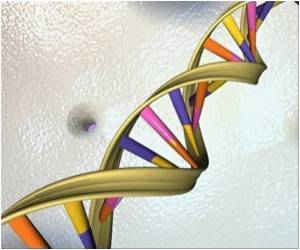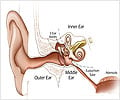Molecular mechanism underlying deafness has been revealed by scientists. Mutation of a specific microRNA called miR-96 known to cause deafness.

The research team, led by Dr Walter Marcotti, Royal Society University Research Fellow from the University's Department of Biomedical Science, in collaboration with Professor Karen Steel at the Sanger Institute in Cambridge, discovered that the mutation in miR-96 prevents development of the auditory sensory hair cells. These cells are located in the inner ear and are essential for encoding sound as electrical signals that are then sent to the brain.
The research was based on studies of mice, which do not normally hear until about 12 days after birth. Prior to this age their immature hair cells must execute a precise genetic program that regulates the development of distinct types of sensory hair cell, namely inner and outer hair cells.
The research teams found that in a strain of mice called diminuendo - which carry a single base mutation in the miR-96 gene - hair cell development is arrested around birth.
The study shows that miR-96 normally regulates hair cell development by influencing the expression of many different genes associated with a wide range of developmental processes at a specific stage. The researchers discovered that the mutation hinders the development not only of the mechanically sensitive hair bundle on the cell apex but also the synaptic structures at the base that govern transfer of electrical information to the sensory nerves. These new findings suggest that miR-96 is a master regulator responsible for coordinating the development of the sensory cells that are vital to hearing.
Since the mutation in miR-96 is known to cause human deafness and microRNA molecules can be targeted by drugs, the work also raises new opportunities for developing treatments to treat hearing loss.
Advertisement
The discovery has been published n the Proceedings of the National Academy of Sciences journal.
Advertisement












